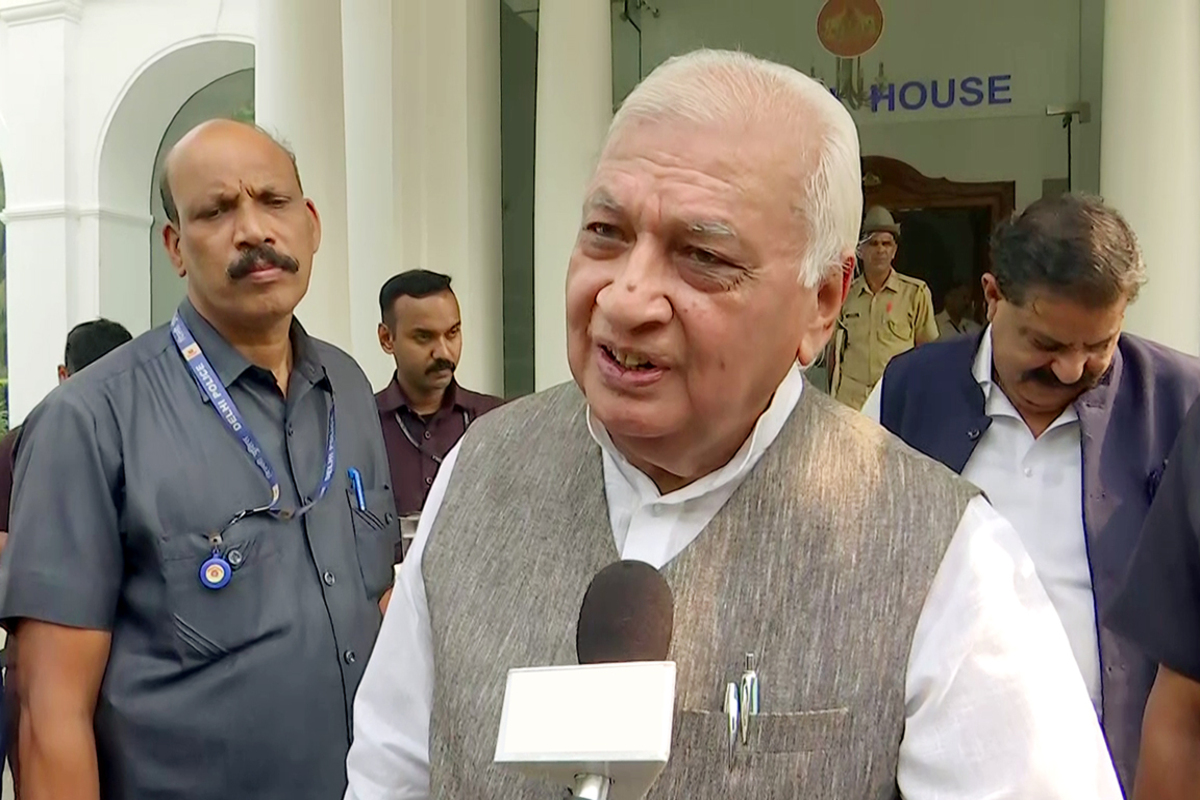The Supreme Court on Friday asked the Kerala Governor Arif Mohammed Khan’s office to look into its order relating to the inaction of Punjab governor on the Bills passed by the State legislature.
The apex court’s order in the case of the Punjab governor says the “Governor is not at liberty to withhold his action on the Bills which have been placed before him” for his assent and cannot veto the functioning of the legislative domain.
Advertisement
Heading a bench also comprising Justice J B Pardiwala and Justice Manoj Misra, Chief Justice D Y Chandrachud asked the Kerala Governor Arif Mohammed Khan’s office to look into its order on the Punjab governor that hold that the powers entrusted to the governor cannot be taken recourse to thwart the normal course of lawmaking by the state legislatures.
Posting the matter for hearing on November 29, CJI Chandrachud said the order was uploaded on the top court’s website on Thursday night.
At the outset of the hearing, senior advocate and the former Attorney General K K Venugopal said that the judgment in the case of Punjab will cover the issues arising in the stand-off between the Kerala government and the State governor.
While K K Venugopal appeared for the Kerala government, Attorney General R. Venkataramani appeared for the Central government. The top court had in the last hearing on November 20 had asked the Attorney General Venkataramani or Solicitor General Tushar Mehta to assist them in the matter.
The Supreme Court, by its November 10, 2023 judgment relating to inaction by the Punjab governor on the Bills passed by the state legislature and presented to him for his assent, has said, “The Governor, as an unelected Head of the State, is entrusted with certain constitutional powers. However, this power cannot be used to thwart the normal course of lawmaking by the State Legislatures. Consequently, if the Governor decides to withhold assent …, the logical course of action is to … remitting the Bill to the state legislature for reconsideration” as soon as possible.
Stating that the Article 200 of the constitution – that provides for the “assent to Bills” by the Governor – must be read as a whole, the judgment says that if Governor decides to withhold the assent to a Bill, then only course to be followed by him is to send the Bill back to the legislature for reconsideration.
Withholding the assent and keeping the Bill to himself, the judgment said that the governor would be in a “position to virtually veto the functioning of the legislative domain by a duly elected legislature by simply declaring that assent is withheld without any further recourse”.
It had further said, “Such a course of action would be contrary to fundamental principles of a constitutional democracy based on a Parliamentary pattern of governance. Therefore, when the Governor decides to withhold assent under the substantive part of Article 200, the course of action which is to be followed is that which is indicated in the first proviso. The Governor is under Article 168 a part of the legislature and is bound by the constitutional regime.”
The judgment said that the “Governor is not at liberty to withhold his action on the Bills which have been placed before him. He has no avenue but to act in a manner postulated under Article 200”.
The Supreme Court November 20 had sought Central government’s response on Kerala government plea against the State Governor Arif Mohammad Khan for sitting over three bills, pending with him for his assent.
Also issuing notice to the Additional Chief Secretary to the Governor, the court had sought the assistance of the Attorney General R. Venkataramani or Solicitor General Tushar Mehta in the matter.
Senior advocate Venugopal had told the court that in case of all the three bills, the Governor had earlier promulgated the ordinance on them in the first instance but when they were enacted by the State assembly, he is sitting over them and not clearing.











